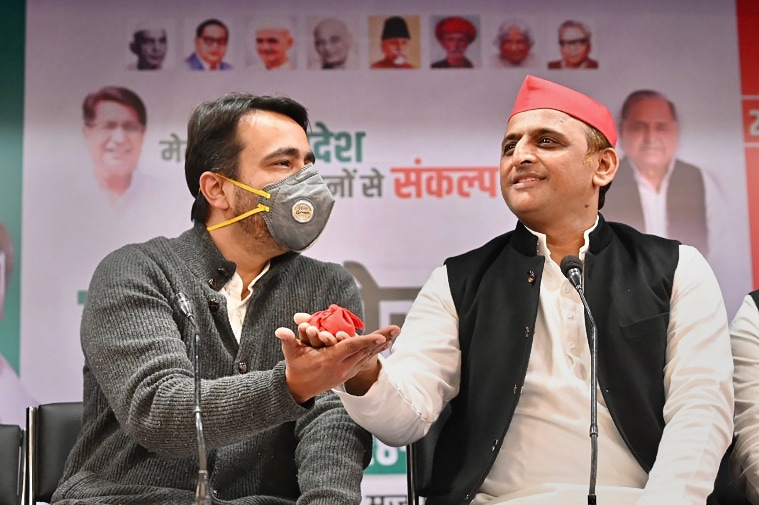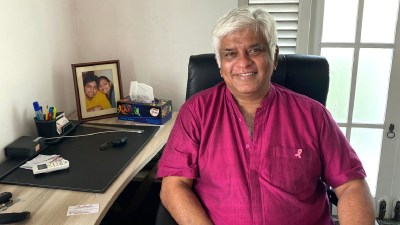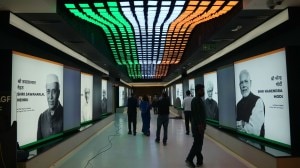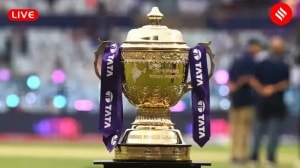
When Samajwadi Party (SP) leader Akhilesh Yadav took the oath as Uttar Pradesh’s 20th chief minister in March 2012, he was 38 years old, becoming the youngest UP CM so far. His father Mulayam Singh, the SP founder, has also been a UP CM, which made them the only father-son duo to have assumed the post in the state till now. After Mayawati, Akhilesh became the second UP CM since Independence to have completed the full five-year tenure.
Although Mulayam became the UP CM thrice, he never saw the SP or his erstwhile party Janata Dal getting a majority on their own during any of his tenures.
In the 1989 UP Assembly elections, when Mulayam was heading the VP Singh-led Janata Dal in UP, the party had won 208 out of the total 425 seats. The BJP extended its outside support to his government and later, in 1990, when the saffron party pulled the plug the Congress came to its rescue. After the 1993 polls, he came to the helm as the head of the SP- Bahujan Samaj Party (BSP) coalition government. When he returned as the CM for the the third time in 2003, his government was backed by various parties.
One year after its formation, in the 1993 UP Assembly polls, the SP had won 109 out of 425 seats. It managed to win 110 of 425 seats in 1996, and 143 and 97 of 403 seats in the 2002 and the 2007 polls, respectively.
The party’s best bid was reflected in the 2012 UP Assembly polls when it clinched a majority comfortably, bagging 224 of 403 seats. The BSP won 80 seats, while the BJP and the Congress could win just 47 and 28 seats, respectively. Mulayam, then 73, decided to transfer the mantle to his son Akhilesh, who took over as the new CM.
 Samajwadi Party President Akhilesh Yadav waves at the people, during an election campaign rally for UP Assembly elections, in Barabanki. (PTI Photo)
Samajwadi Party President Akhilesh Yadav waves at the people, during an election campaign rally for UP Assembly elections, in Barabanki. (PTI Photo)
Akhilesh, who was born on July 1, 1973, completed his Bachelors in Civil Engineering from the Mysore-based Sri Jayachamarajendra College of Engineering and Master’s in Environmental Engineering from the University of Sydney.
Story continues below this ad
He was elected as a member of the Lok Sabha for the first time in 2000 from Kannuaj in a bypoll. He subsequently won from the seat in the 2004 and 2009 general elections as well.
Akhilesh had not contested the 2012 Assembly polls, and after becoming the CM he preferred to enter the UP Legislative Council as an MLC.
Although the SP had not projected Akhilesh as its CM candidate in the run-up to the 2012 Assembly polls, he played a key role in its electioneering. During the campaign, he was appearing to set the agenda for the party, seeking to distance it from leaders with criminal background. In a bid to reach out to youths, he also made various pledges for them, especially relating to employment opportunities.
🗞️ Subscribe Now: Get Express Premium to access the best Election reporting and analysis 🗞️
Story continues below this ad
During its 2012-17 tenure, the Akhilesh Yadav government distributed laptops among students, which became a “popular” move among a section of youths. It made attempts to improve electricity generation and its availability in the state. It also built a major expressway along the Agra-Lucknow stretch.
 SP chief Akhilesh Yadav along with RLD chief Jayant Chaudhary. (PTI)
SP chief Akhilesh Yadav along with RLD chief Jayant Chaudhary. (PTI)
Akhilesh’s chief ministerial tenure was however not a smooth sailing. He tried to steer clear of issues relating to various caste groups. He also had to grapple with family feuds for control of the party, with his ambitious uncle Shivpal Yadav rising to challenge his leadership.
Months before the 2017 Assembly polls, in October 2016, the simmering intra-SP power struggle burst into the open when during a meeting of party leaders Akhilesh openly accused then party Rajya Sabha MP Amar Singh of being behind his family conflict.
Subsequently, Shivpal left the SP and floated his own breakaway outfit backed by Amar Singh, which publicly got the “blessing” even from Mulayam himself.
Story continues below this ad
These widening cracks within the SP took a toll on the party’s performance in the 2017 Assembly elections, when its tally plunged to just 47 seats amid a BJP wave.
Despite losing the polls, Akhilesh took complete control of the SP though. In the 2019 Lok Sabha polls, the party formed an alliance with the Mayawati-led Bahujan Samaj Party (BSP), but it came a cropper. Akhilesh, however, won the election from Azamgarh seat.
Over the last five years, Akhilesh seems to have evolved as an Opposition leader. He has made attempts for “image makeover” of his party, trying to change perceptions about the SP being a “party of Saifai (Mulayam Singh’s village in Etawah district) clan” or a “party backed by goons”.
In the run-up to the 2022 UP Assembly polls, he and his estranged uncle Shivpal buried the hatchet, with Akhilesh emerging as a key challenger to the incumbent BJP.



 Samajwadi Party President Akhilesh Yadav waves at the people, during an election campaign rally for UP Assembly elections, in Barabanki. (PTI Photo)
Samajwadi Party President Akhilesh Yadav waves at the people, during an election campaign rally for UP Assembly elections, in Barabanki. (PTI Photo) SP chief Akhilesh Yadav along with RLD chief Jayant Chaudhary. (PTI)
SP chief Akhilesh Yadav along with RLD chief Jayant Chaudhary. (PTI)





























